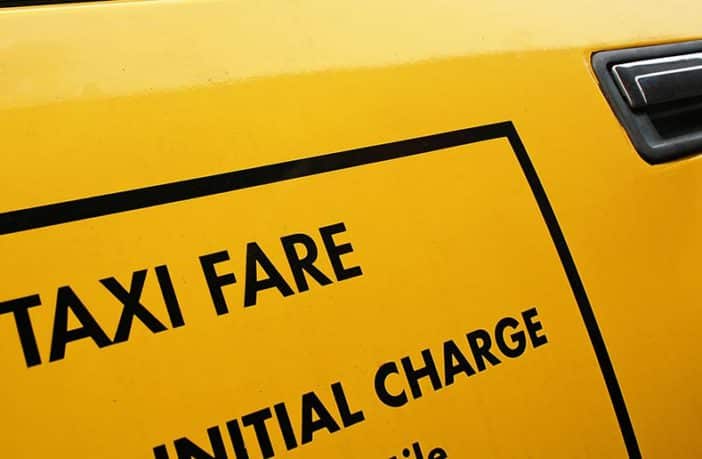Eager to leave Prague’s seedy main train station, I slid into the back seat of a Mercedes Benz station wagon.
The driver locked the doors as he handed over a laminated list of the fares — 980 crowns to the Intercontinental Praha hotel? That’s a $50 cab ride for a distance of 2.3 miles, which should take only eight minutes.
But before I could question why it was so expensive, he started the engine and began to blast Mariah Carey on the radio.
Tales of such exorbitant fares are common among tourists in Prague, even though it is against the law to charge more than 28 crowns ($1.40) per kilometer.
And after the September 6th Municipal Court decision stating that City Hall does not have the right to impose maximum fares, even more cabbies may disregard the fare cap.
As a result of this judicial slap in the face, city officials are more determined than ever to stand their ground.
“We are permanently in a war with the taxis,” said Rudolf Dobiáš, a spokesperson for Prague City Hall. “Their public robbery is completely well-known and part of our folklore.”
City Hall has appealed the court’s decision and will continue to enforce the 28-crown fare, said Prague’s deputy mayor, Markéta Reedová.
Unlike taxis in many other European Union capitals where fares are more are less consistent, Prague’s taxi drivers have gained a reputation of being untrustworthy.
In the early 1990s when Prague first became a tourist mecca, every media outlet from CNN to The New York Times ran horror stories on taxi prices in Prague, including tales of “turbo” meters and electric shocks delivered to passengers who refused to pay.
Those wild days are gone, but attempts at price regulation have failed.
Even Mayor Pavel Bém realized this firsthand when he posed as an Italian tourist in 2005 and was charged six times more than the City’s maximum fare.
Fortunately for residents of Prague, getting ripped off by these cabbies is an experience usually reserved for tourists.
“I got the tourist rate, with the meter clicking away like it was on fast-forward,” said Simon Earl, a British photographer on business in Prague this past July. He too paid some $50 for a ride of less than ten minutes. “It happens when the driver hears that you don’t know the language or the area, so they take advantage of that,” he said.
According to a December 2006 article in ABC Prague, a webzine for Prague visitors, 15 percent of the 5,000 taxi drivers in the city overcharge their passengers.
Residents know to avoid these cabs by calling ahead or sending a text message to reliable and affordable companies like AAA Radiotaxi, Profi or City Taxi.
Targeting tourists, City Hall has recently designated 49 of Prague’s 121 taxi stands as “fair places.” These spots are indicated by a thumbs-up logo and are checked regularly by City Hall clerks to ensure that passengers get fair rides.
Prague’s hotels and transport hubs have distributed more than 100,000 brochures in seven languages about the scheme.
According to City Hall spokesman Dobiáš, the city hopes to integrate the remaining 72 taxi stands into the system by the end of this year.
Linda Patron, a visitor to Prague from North Carolina, was thankful for the pamphlet she found in her hotel.
“Good thing my hotel had [one], because I would have just assumed it was OK to get a taxi off of the street,” she said. “But now that I know that that can be dangerous here, I’m going to start looking for those yellow thumbs.”
In spite of the city’s determination to monitor fares, some taxi drivers are still unwilling to comply with the 28-crown maximum.
In an interview with The Prague Post, Rudolf Tuma, a driver with AAA Radiotaxi, explained that cabbies overcharge because their monthly profit is not enough to live on. After having to pay costs such as car maintenance, petroleum, and insurance, he said he usually only takes home 5,000 crowns ($250) a month.
The salary woes of cab drivers were the reason Prague’s Municipal Court ruled against the City in the first place, according to a September article in Czech Business Weekly.
Then again, an independent driver who wishes to remain anonymous told The Prague Wanderer he makes about 40,000 crowns ($2,000) a month.
Amid this confusion about whether or not taxi drivers should have the right to set their own fares, City Hall insists that cabbies must still follow the fare cap. Libor Šíma, the chief of the Committee for Development and Organization of Transport for Prague’s City Hall, is convinced that city officials will not back down.
“For us, fare regulation must be a continuing process until we can come up with a permanent answer to control the taxis,” said Šíma. “We must do a lot of things to be better.”



